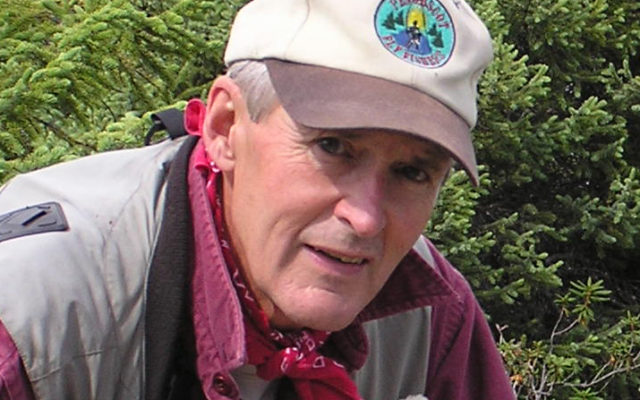
The hunter’s paradox intensifies with age
By V. Paul Reynolds
When I was a very young man who loved to hunt deer, not much thought, quite frankly, was given to the why of my passion for the hunt. Somehow, when I got in the deer woods on a frosty November morning and waited for hours along a cedar bog for a big buck to show himself, it just felt right. I knew that I belonged there. Oh sure, when I killed my first deer, there was that predictable emotional duality that visits most hunters sooner or later: satisfaction for having filled the tag and the home freezer and, contrastingly, some sadness at having dispatched one of God’s majestic creatures.
Now that I am an old man who still loves to hunt deer, I find myself putting a great deal of thought into the why of my hunting addiction. I am told that this is not unusual, that most dedicated deer hunters pass through certain phases as their beards turn grayer and their treks in the deer woods get shorter.
For some old timers, the final phase is simply to quit the hunt altogether, either for health reasons or simply because the lust for the hunt loses its appeal.
Not me. Being there in the November deer woods still stirs me, and I pray for the body and the energy to get me out there in the hardwoods and back to the truck safely. Hunting philosophers and others who delve into the psyche of us hunters would say that I am in the so-called Legacy Phase. I grow reflective and perhaps even inspirational. I worry about the continuation of the hunting traditions and the lack of young people being “brought along.” I look back on my own deer hunting experiences with indelible memories.
Part of this phase, at least for me, involves seeking out the innermost thoughts of other hunters, especially those whose capacity to explain and explore this duality, or hunter’s paradox, eclipses my own. Here are a couple of excerpts on this subject that resonate deeply with me and may with you.
“As you learn about animals, you will also learn that the presence of hunters in the animal world is natural. A hunter is a predator participating in a world where predation belongs. Just as predators belong to the natural system, an ethical hunter also belongs to the natural system. That sense of belonging becomes real when you hunt.”
-Jim Posewitz, Montana wildlife biologist and ethicist
“ I thought about life, and I thought about death and how one chance encounter, one single moment, holds the difference between the two. And, like so many other humans have, I pondered what does it all mean? And I realized that question is partly why I hunt. No. 1 is the protein and No. 2 the introspection, the indecision, the chance to reach out and touch the bare, cold truth that life feeds on life, to feel a visceral connection to the uncertainty of life and the frightening certainty of death.”
– Heather Fraley, Senior Editor, Bugle Magazine
As a deer hunter, what do you think?
The author is editor of the Northwoods Sporting Journal. He is also a Maine Guide and host of a weekly radio program “Maine Outdoors” heard Sundays at 7 p.m. on The Voice of Maine News-Talk Network. He has authored three books. Online purchase information is available at www.sportingjournal.com, Outdoor Books.